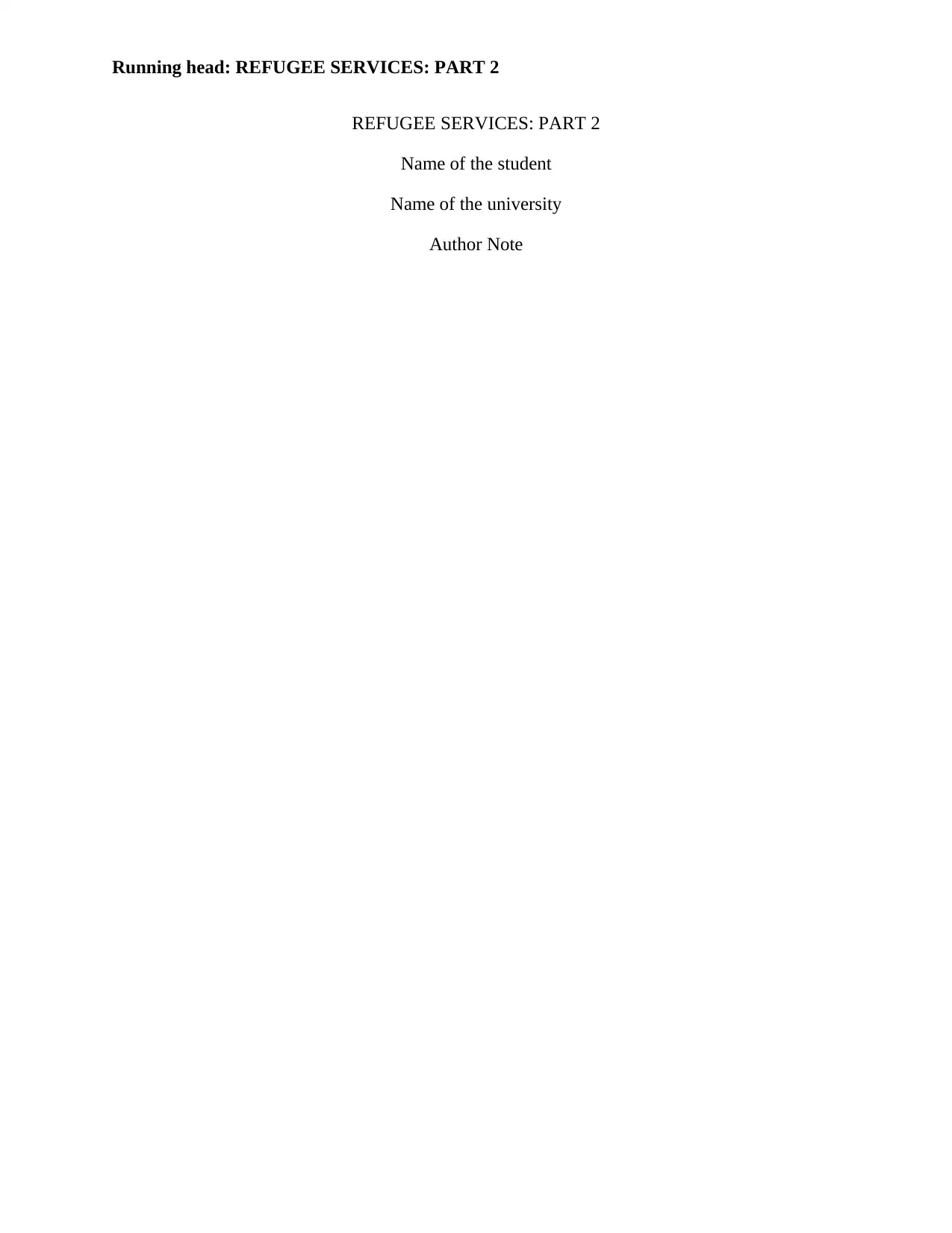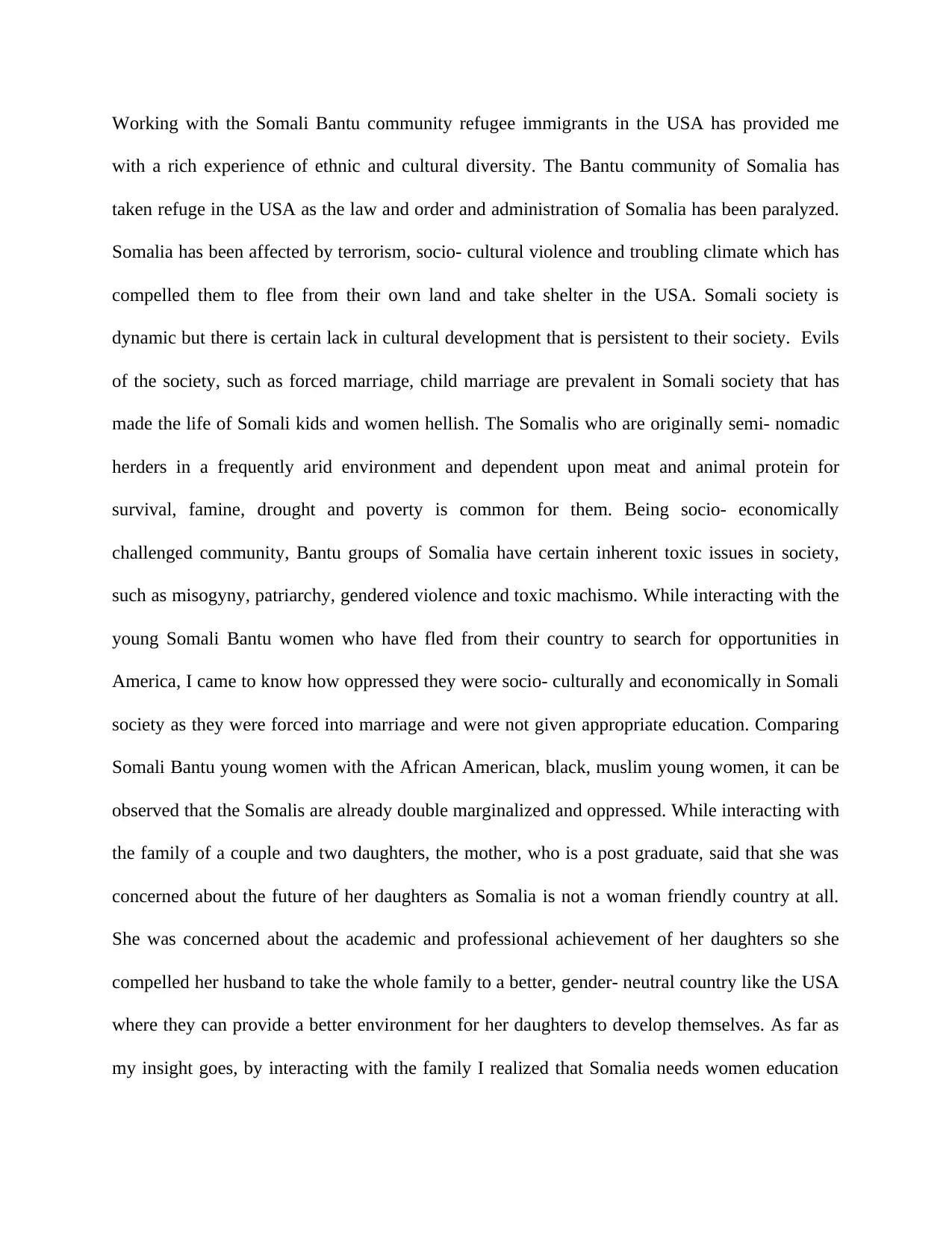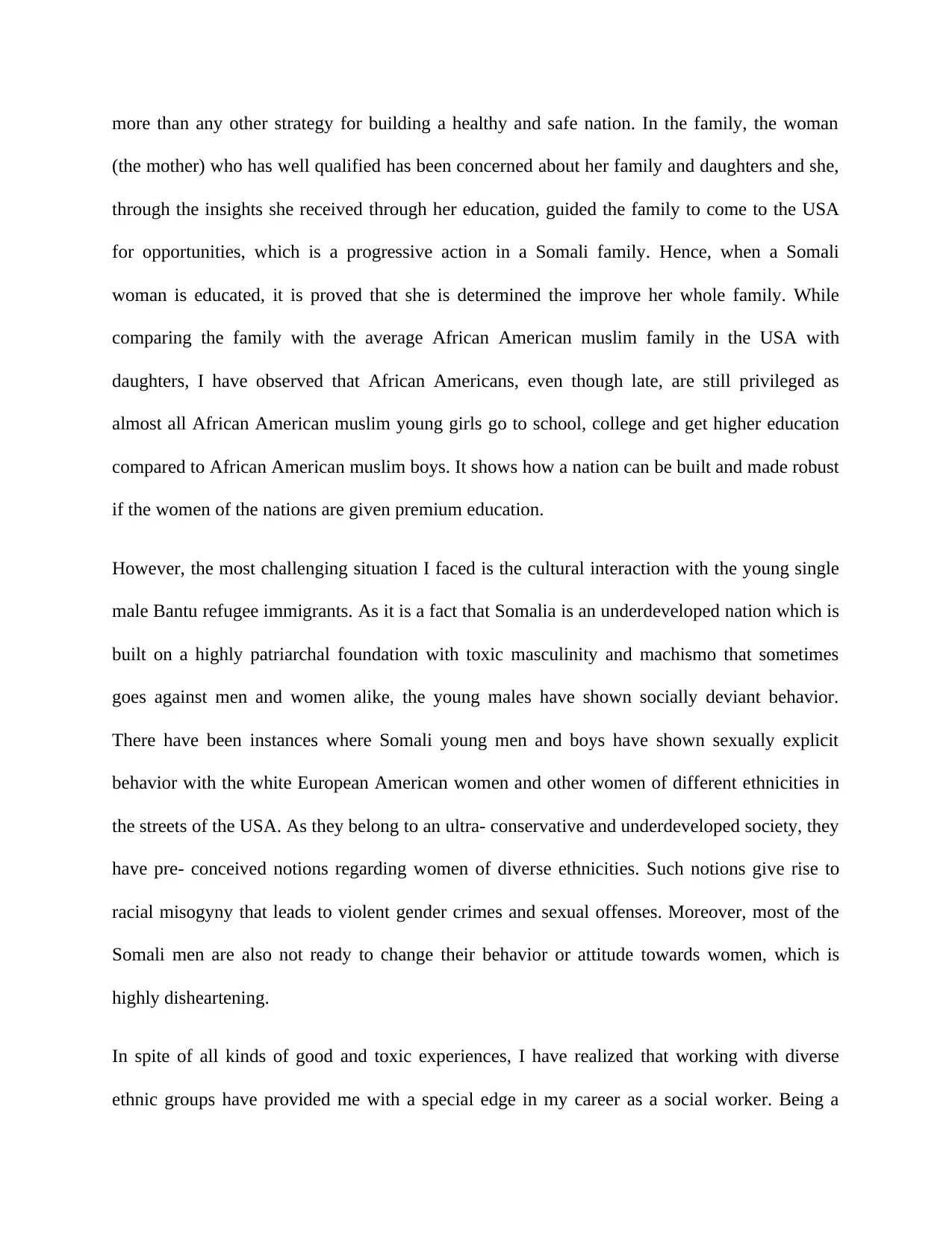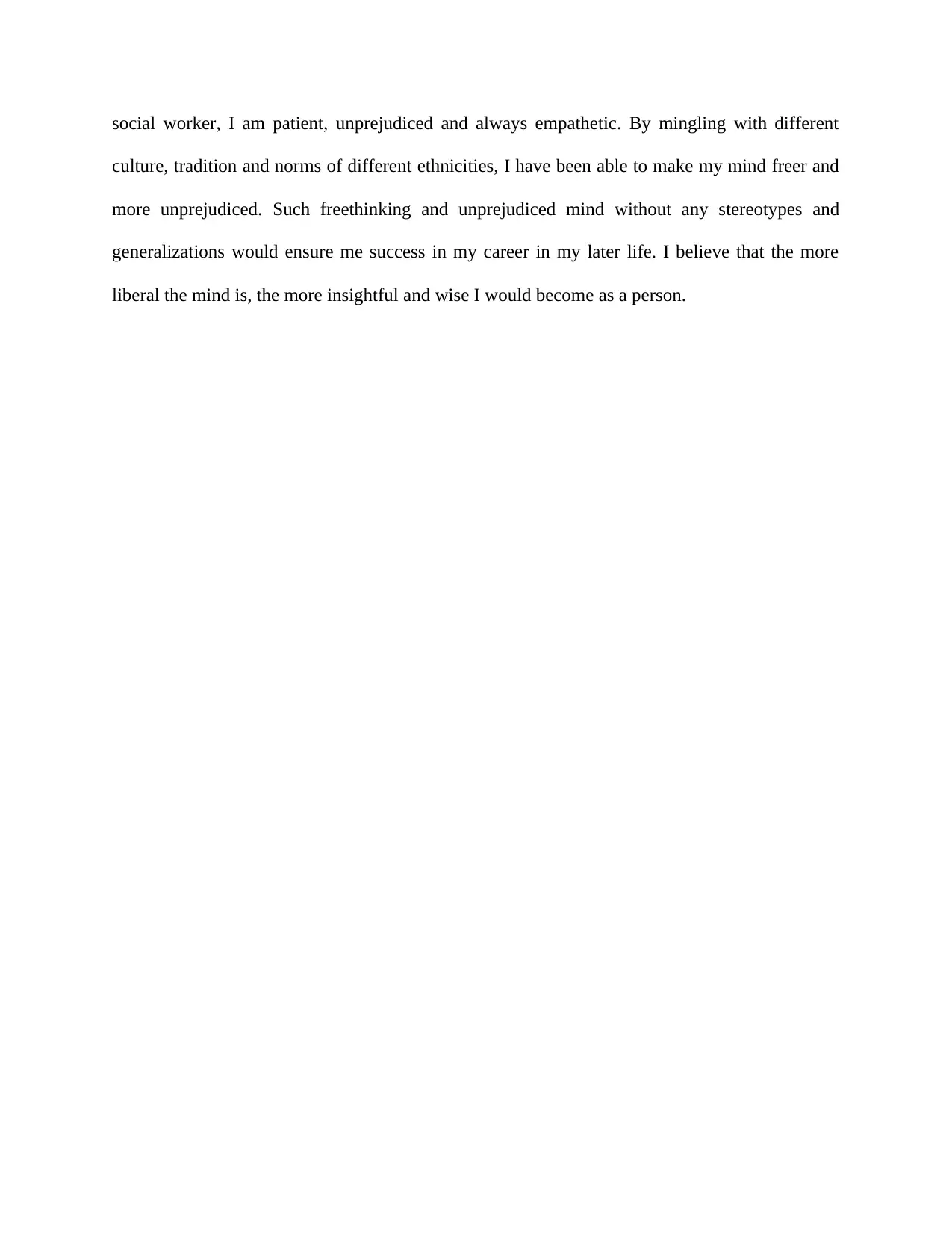Refugee Services: Part 2 - Sociological Insights on Refugee Services
VerifiedAdded on 2022/08/14
|4
|846
|27
Report
AI Summary
This report provides an insightful analysis of the experiences of the Somali Bantu community, focusing on their resettlement in the USA. The author, through direct interaction, explores the cultural dynamics, societal challenges, and the impact of gender inequality within the community. The report highlights the prevalence of patriarchal structures, forced marriages, and limited educational opportunities for women in Somalia, contrasting them with the experiences of African American Muslim women in the USA. It emphasizes the importance of women's education as a catalyst for family and societal progress. Furthermore, the report addresses the challenges of cultural interaction, particularly the socially deviant behavior of some young male refugees, stemming from pre-conceived notions and toxic masculinity. The author reflects on the personal and professional growth gained from working with diverse ethnic groups, emphasizing the development of patience, empathy, and an unprejudiced mindset, crucial for a successful career in social work.
1 out of 4






![[object Object]](/_next/static/media/star-bottom.7253800d.svg)